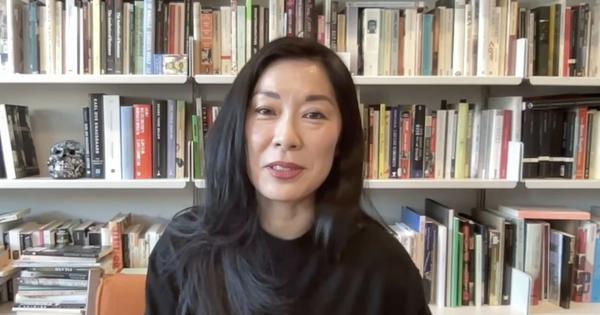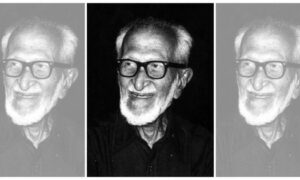
Katie Kitamura’s Audition is perhaps the most stylistically advanced novel on the 2025 Booker Prize shortlist. It is unabashedly self-indulgent, star-struck by its own performance. And yet, it is a novel very aware of its making – unfolding in small acts and unpredictable reactions, asking: what do we do with our performative selves when the curtains go down?
An encore
The narrator, a middle-aged woman, cannot stop watching herself. We first meet her as a financially secure actor of moderate success. She’s not white, and her age and racial profile prevent her from being prolific, but she has high standards that she holds herself to. She’s performing even when she’s not – constantly addressing an audience that doesn’t exist. Almost everything in her existence – from her marriage to her stylish Manhattan apartment – is a prop in her performance. Her comments are offhanded yet pointed, displaying the earnestness of playing a complex role without revealing the arduous labour of perfecting it.
The novel is divided into two sections – the first one much shorter in comparison.
The narrator is meeting Xavier, a man “young enough to be her son”, at a restaurant. She’s anxious and alert to her surroundings, and feels suspicious gazes on her. The sexual pinings of the meeting – if any – are washed away by the tension of the whole arrangement. The nervousness and discomfort are so oppressive that she suspects Xavier is “copying” her to mock her. She’s so self-conscious, probably made worse by the fear of being discovered by her husband, that the performance becomes a botched version of what she had practised and hoped to emulate. Kitamura’s prose shadows her narrator’s uneasiness – the sexual and artistic.
The second section of the novel opens in a confusing mess. Xavier, who had formerly only claimed to be the narrator’s son, returns as her only child. And yet, there is something amiss here. The narrator regards him with a coolness that one would a familiar stranger. He is seen as an “archetypal son” who “performs” his filial affection and duty – a realisation that does not strike his mother (the narrator) but another middle-aged woman with whom he is apprenticing. Nevertheless, the fraught mother–son relationship is further burdened by the narrator’s Oedipal feelings. She thinks it necessary to always be presentable to her son and is consumed by rage and jealousy when he brings over a girlfriend to stay with the family.
A monodrama
The slovenly domesticity of the second half becomes an antidote to the confused pastiche of a marriage in the first. In the first half, the narrator had affairs as a consequence of a miscarriage, while in the second, it is her husband who has strayed. The son is also an ambiguous entity – we are not told what he was like as a child or how parenthood might have affected the narrator’s marriage – and exists almost entirely in the present. Like a cameo appearance, the narrator is delighted to have this “ideal version” return home, a version they had always “hoped” for.
The strain of her affair is nothing compared to the envy she feels as a mother. The sexual thrum is almost impossible to bear. She witnesses her husband transform in the company of their son’s girlfriend in a way that embarrasses her. It is when she is snubbed twice over in her longest-running act – that of a mother and a wife – that she realises she is finally free to do as she pleases, and these performances, though meticulous and painful, are ultimately devoid of any inherent meaning. The perfection that she had been slouching towards ceases to exist. In the absence of this suffocating hold, a crucial lesson unfolds for her – great improvisation is the secret to a great performance.
Audition presents boundless possibilities of the self, the most pertinent of which are perhaps the shifting natures and expectations of marriage, motherhood, and our public lives. It is a novel of ideas and Kitamura does not hesitate to present it as such. The two sections reflect each other endlessly in a permutation of meanings while also tricking the reader into trusting the continuum. The novel, composed of absences, encourages a suspension of disbelief by improvising on the novelistic form – there is no plot to pin down, the narrator exists in a haze of memory and imagination, time zigzags. A less daring writer would have been intimidated by her own creation but Kitamura is undaunted by the collapses in her narration. This literary performance – a monodrama so audacious and liberated – is one for the ages.
Audition, Katie Kitamura, Vintage.
📰 Crime Today News is proudly sponsored by DRYFRUIT & CO – A Brand by eFabby Global LLC
Design & Developed by Yes Mom Hosting





